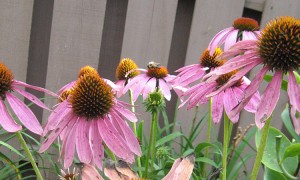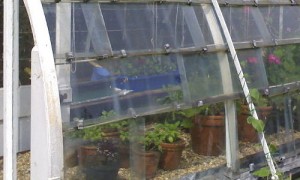It’s no secret that varmints in a garden can dull a green thumb and put a damper on horticultural fun. Fortunately, there are a number of natural ways to keep unwelcome insects from ruining this season’s crown of flowers or bushel of crops. With organic pest control, you can take back your DFW garden from mischievous critters without relying on harsh chemicals or inhumane tactics.
Start From Seeds
Planning your garden before planting it can organically reroute an insect highway. Embrace the concept of companion planting and situate varieties of vegetation that have been developed to repel pests and fight disease among your delicate flowers and burgeoning vegetables.
Consider nurturing plants in a raised garden bed, as this can keep your garden inaccessible to insects that remain low to ground, like slugs and snails. Beat the legendary Texas humidity by spacing out your plant rows to reduce the chances of cultivating a runaway bout of fungus.
Physical Barriers
Keep your garden free from the influx of determined insects, resourceful bats, rowdy rodents, and rude birds by placing netting over your garden patch. Simply lay netting over your vegetation to catch pests in the act and give them no choice but to try their luck in another garden. As an added benefit, netting can also protect fragile plants or vegetables from the unforgiving onslaught of Texas hail.
If you have a problem with slugs or worms sliming their way into your garden, reach for an empty plastic soda bottle or milk jug. Remove its top and bottom so that you’re left with a plastic cylinder, and place it over any plant that these creepy crawly critters find tasty. This cheap and effective fortress will protect your vegetation from insurgent feeders.
Strategic Planting
Nurture plants that have been noted to attract beneficial insects, like ladybugs, that mercilessly prey on small pests. Herbs, like cilantro, and pollen-producing flowers, such as the African marigold, can invite ladybugs to feast on an army of aphids. Add plants that repel insects because of their bitter taste, like chilli, or noxious smell, like wormwood, to your organic pest control toolbox. A few daisies in your garden can alleviate many of your pest problems simply by attracting insects.
If you expect that your garden’s insect population will be out of control no matter what you do, consider planting a vegetable in your garden that will distract insects looking for an easy nosh. Placing a universally tempting cabbage away from your main garden will likely attract most of your pests and divert them away from your vegetables and flowering plants. Keeping an open compost bin separate from your garden will do the same.
Regularly maintain your garden so that you can remove sick or decaying plants from your bountiful patch. Unhealthy plants act as a homing beacon to wayward pests looking for a new home or food source.
[cf]skyword_tracking_tag[/cf]







Samantha thank you for putting such great detail in this organic pest control article. In Seattle and most of the state of Washington Organic Pest Control is in high demand